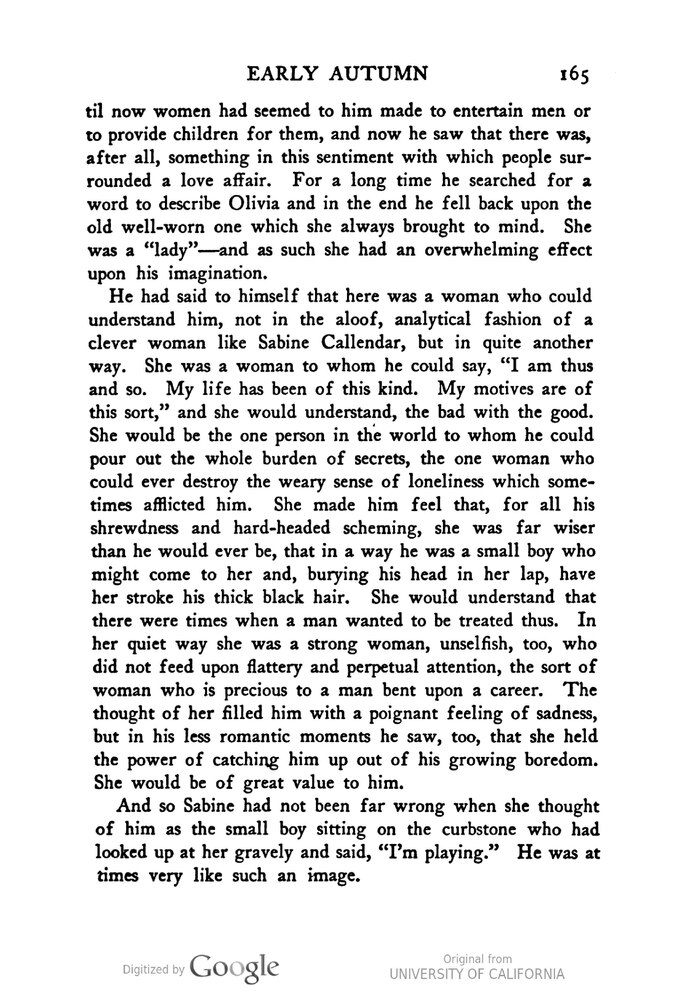til now women had seemed to him made to entertain men or to provide children for them, and now he saw that there was, after all, something in this sentiment with which people surrounded a love affair. For a long time he searched for a word to describe Olivia and in the end he fell back upon the old well-worn one which she always brought to mind. She was a "lady"—and as such she had an overwhelming effect upon his imagination.
He had said to himself that here was a woman who could understand him, not in the aloof, analytical fashion of a clever woman like Sabine Callendar, but in quite another way. She was a woman to whom he could say, "I am thus and so. My life has been of this kind. My motives are of this sort," and she would understand, the bad with the good. She would be the one person in the world to whom he could pour out the whole burden of secrets, the one woman who could ever destroy the weary sense of loneliness which sometimes afflicted him. She made him feel that, for all his shrewdness and hard-headed scheming, she was far wiser than he would ever be, that in a way he was a small boy who might come to her and, burying his head in her lap, have her stroke his thick black hair. She would understand that there were times when a man wanted to be treated thus. In her quiet way she was a strong woman, unselfish, too, who did not feed upon flattery and perpetual attention, the sort of woman who is precious to a man bent upon a career. The thought of her filled him with a poignant feeling of sadness, but in his less romantic moments he saw, too, that she held the power of catching him up out of his growing boredom. She would be of great value to him.
And so Sabine had not been far wrong when she thought of him as the small boy sitting on the curbstone who had looked up at her gravely and said, "I'm playing." He was at times very like such an image.
